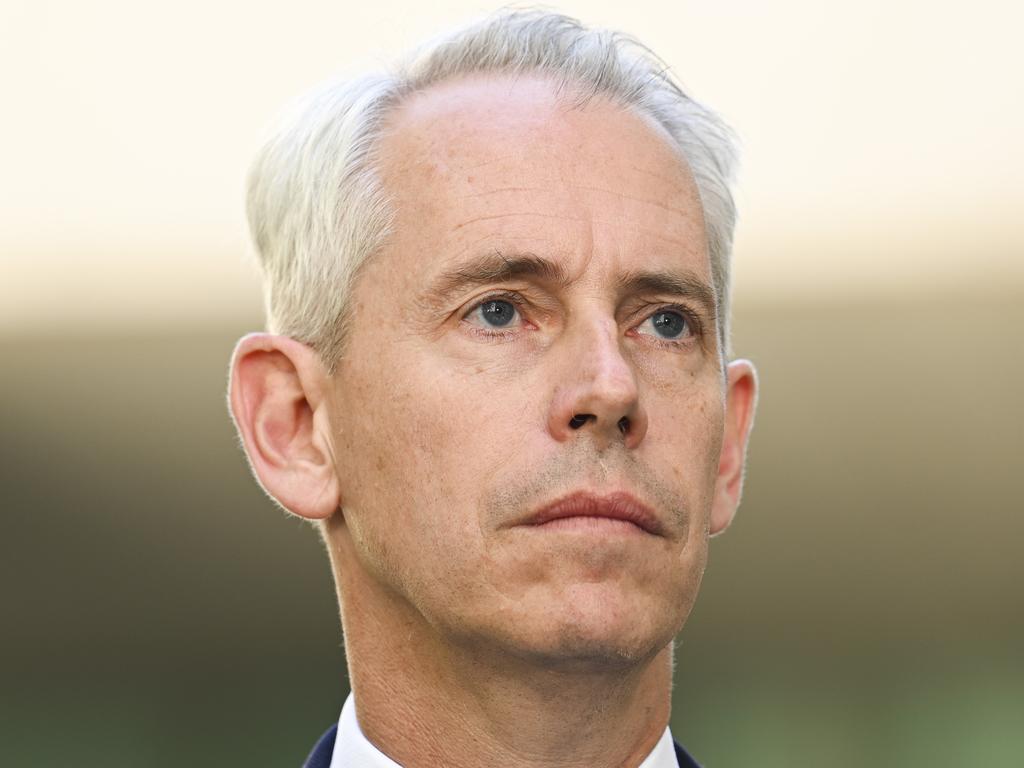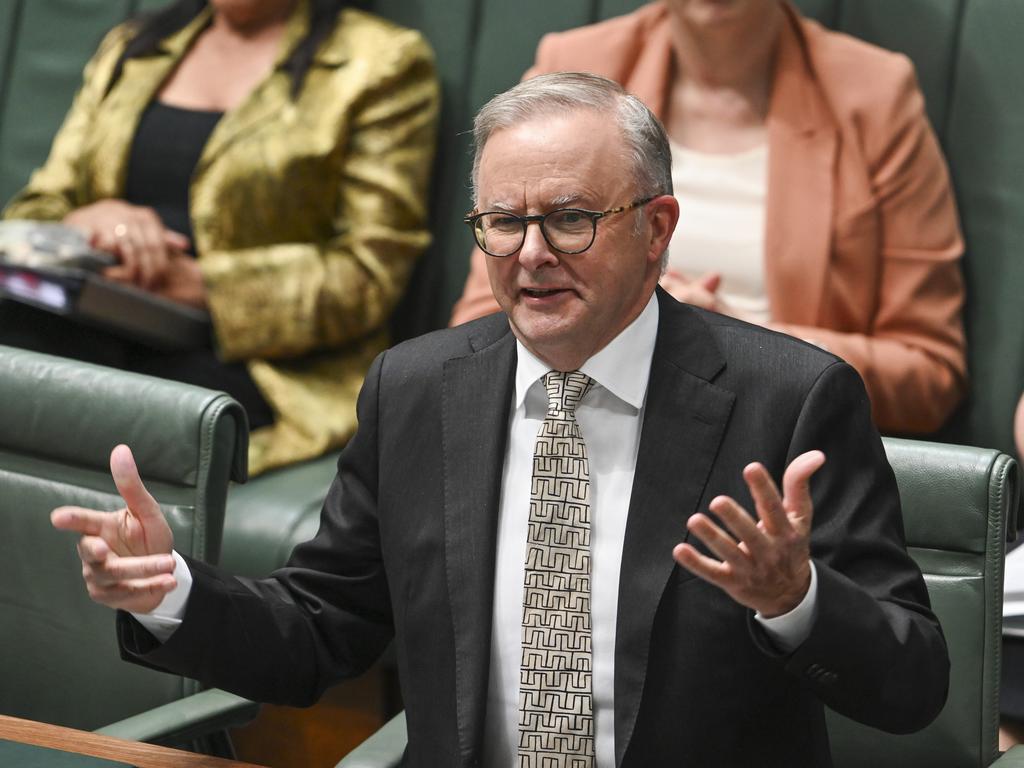Anthony Albanese says government ‘unchanged’ on emergency migration laws
Anthony Albanese has ruled out changes to Labor’s emergency migration laws, despite a nonpartisan committee that included three government senators raising major concerns with the legislation.

Anthony Albanese has ruled out changes to Labor’s emergency migration laws, despite a nonpartisan committee that included three government senators raising concerns with the legislation.
The committee’s report was tabled quietly last Wednesday and included criticisms on the speed with which Labor was attempting to pass the new laws, along with warnings over the wide-reaching powers they give to the immigration minister.
Despite the committee’s findings – revealed by The Australian on Tuesday – the Prime Minister said he would not consider adjusting the legislation.
“The legislation has passed the House of Representatives. It’s sitting in the Senate,” he said in Brisbane. “They had a Senate inquiry. That Senate inquiry heard from officials (on) why this legislation is necessary and the government’s position remains unchanged. It’s up to Peter Dutton to explain why … he decided to play politics and just oppose (it).”
When asked whether he had failed to win over his caucus and if he was willing to change the legislation in order to appease MPs, Mr Albanese said: “Not at all.”
The committee made a number of recommendations on how the laws could be improved, such as by containing the minister’s powers in the primary legislation and subjecting them to “full parliamentary consideration”.
It also recommended that the removal directions should also be in primary legislation that could be overseen and amended by parliament, not regulation that is signed off by the executive.
Finance Minister Katy Gallagher said it was not “any surprise” that the committee had made recommendations for the bill to be improved.
“It is not unusual to have Senate committee reports that might differ from how the government tries to get legislation through the parliament. That is not unusual,” she said.
“The scrutiny of bills committee … it’s a particular type of committee. It’s a committee that sort of looks at drafting and technicalities and … how powers are used and things like that. So, I don’t think it’s any surprise the scrutiny of bills committee has come up with recommendations.”
Labor attempted to pass its emergency migration laws last week, but faced opposition from the Greens and the Coalition.
It came ahead of a High Court case due to be heard later this month, in which an Iranian man known as ASF17 is refusing to co-operate with efforts to send him back to his home country because of claims he will be persecuted on the grounds of his sexuality.
Mr Albanese said the emergency migration laws were “practical” measures needed to address a gap in legislation.
“We put forward practical legislation before the parliament to deal with the gap that has been there in the legislation for some period of time – a gap that enables someone to benefit from not having the common sense response of providing information and co-operating with the Australian government,” he said.
“This is about people who have been found … not to be refugees and not to have a status that requires Australia to provide protection, or to provide a legitimate reason for them staying here in Australia.”
Opposition government services spokesman Paul Fletcher said the government had sought to rush deportation laws through parliament on multiple occasions and that the Coalition was concerned legislation was not getting the “appropriate scrutiny”.








To join the conversation, please log in. Don't have an account? Register
Join the conversation, you are commenting as Logout